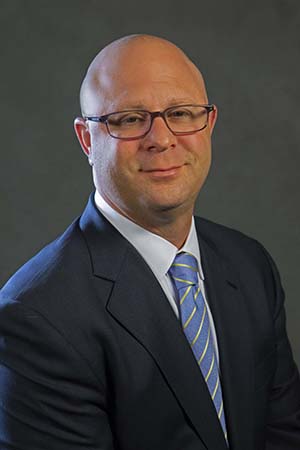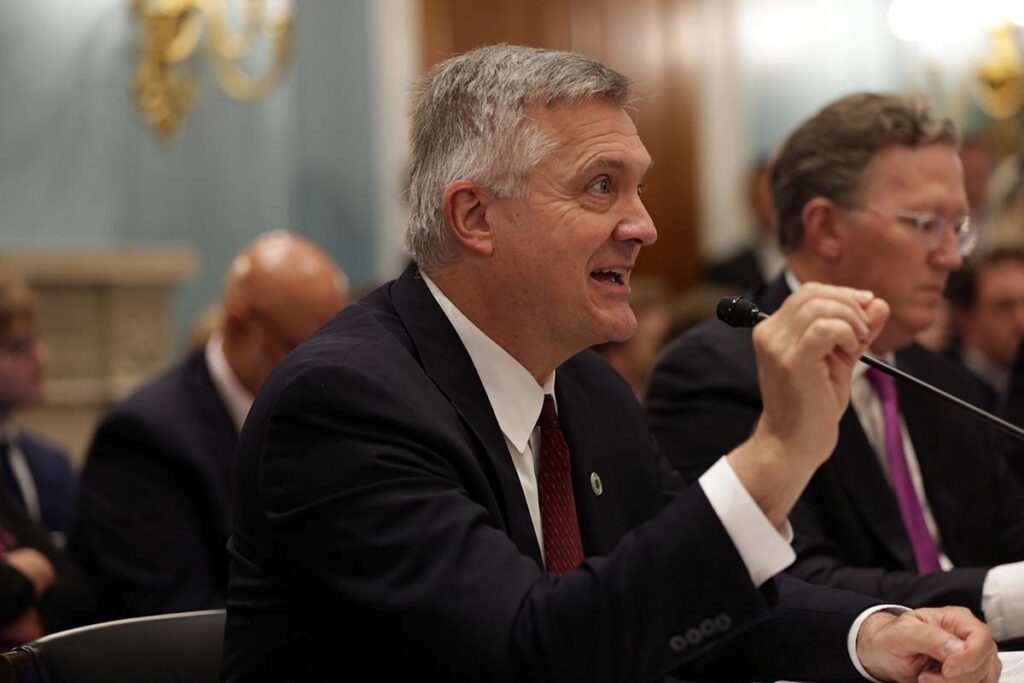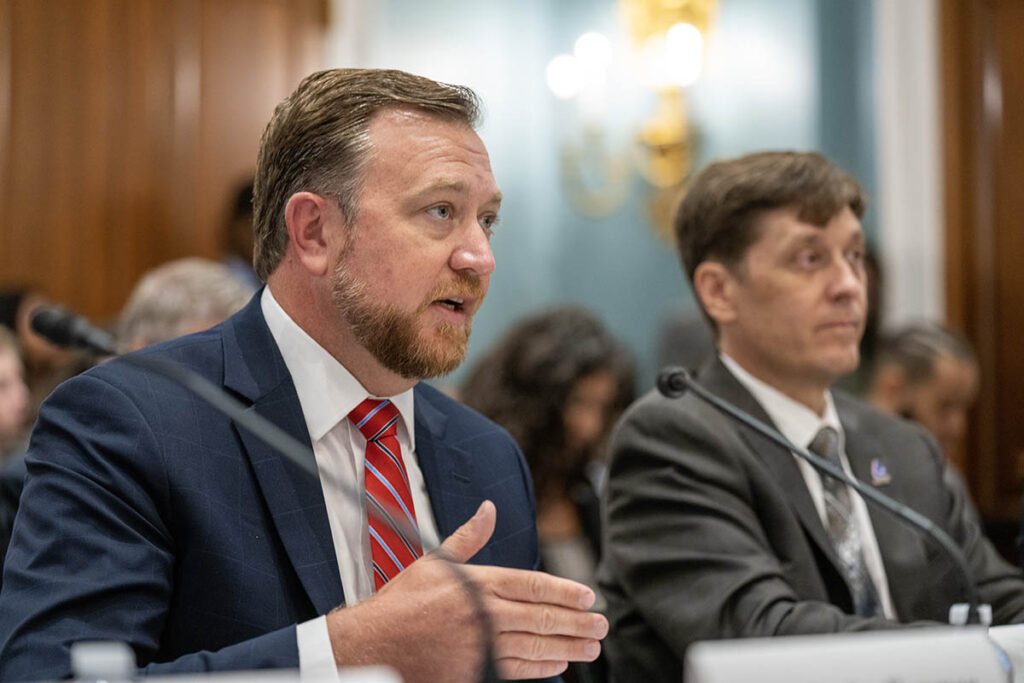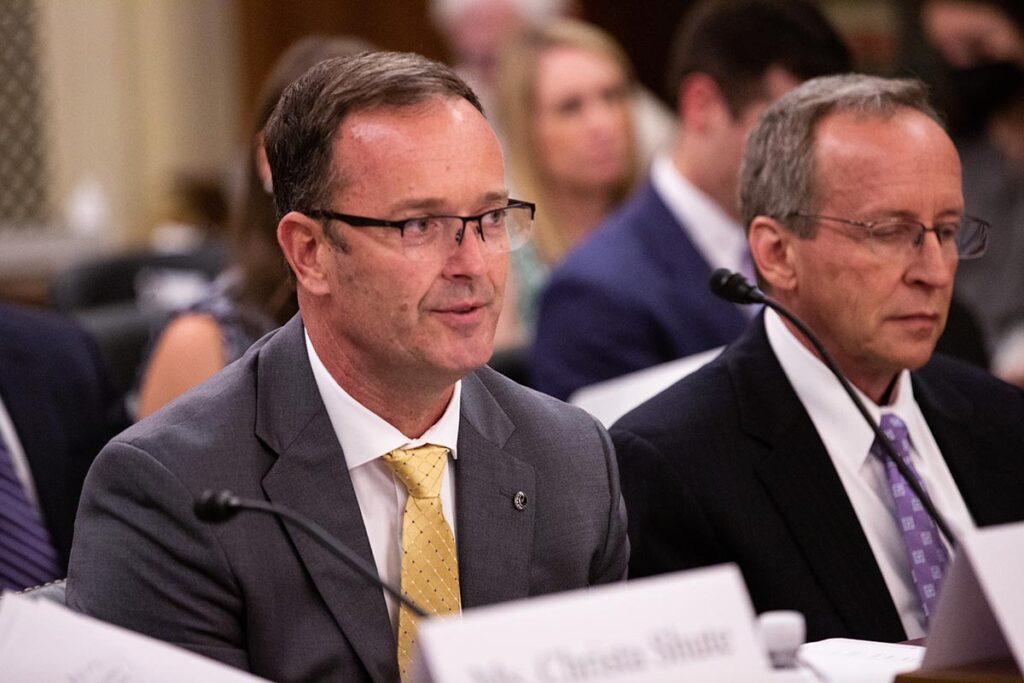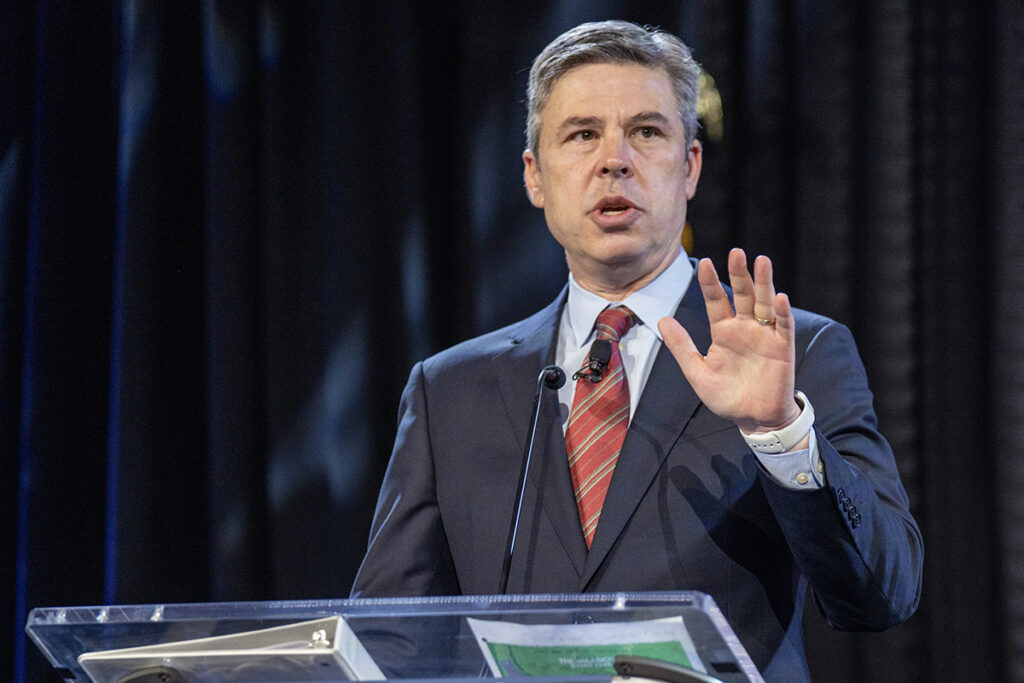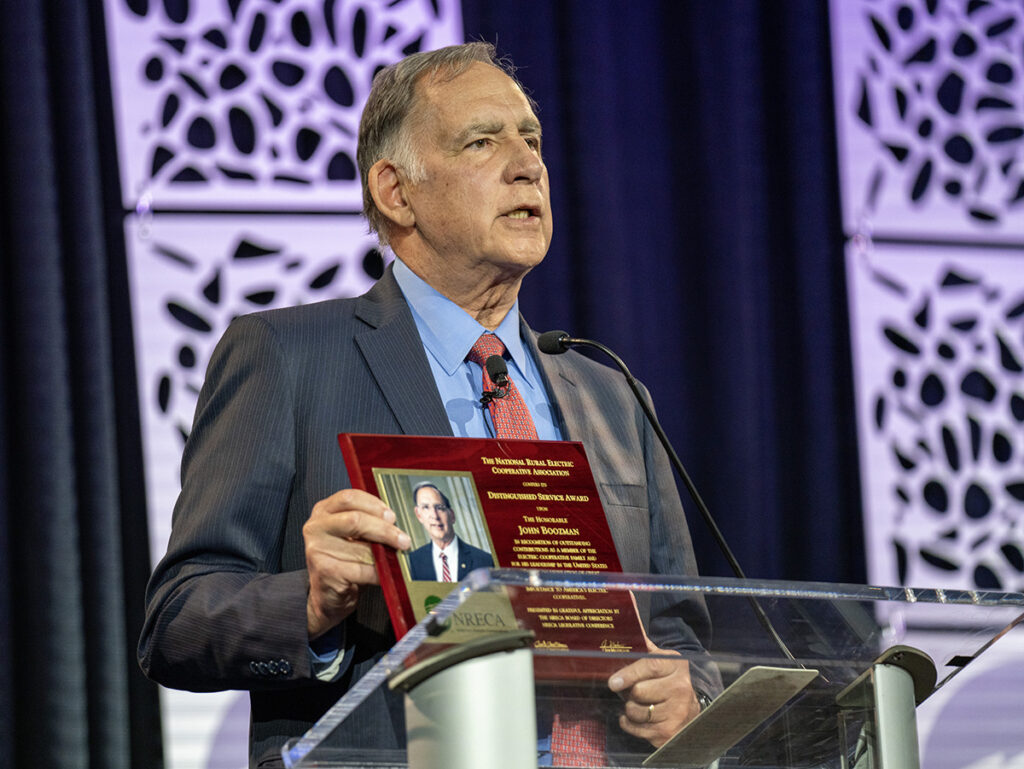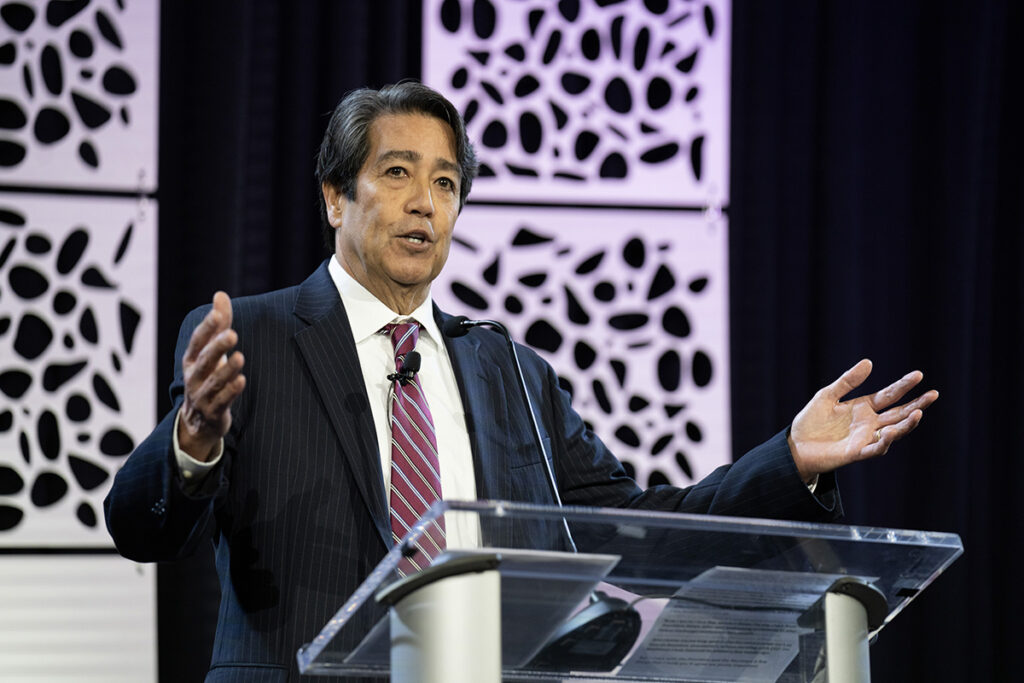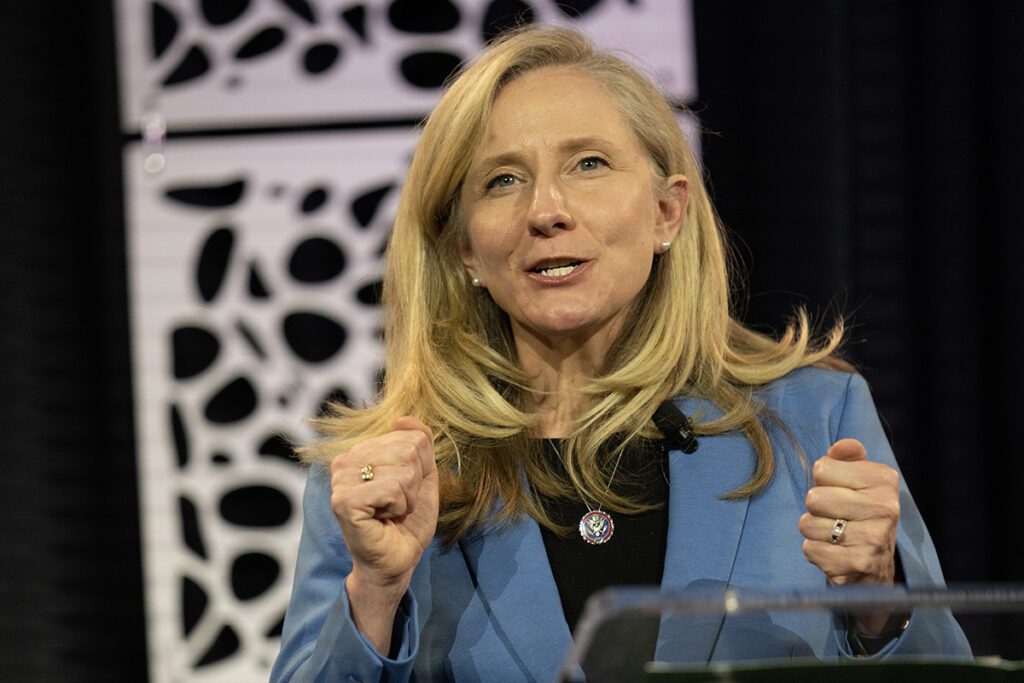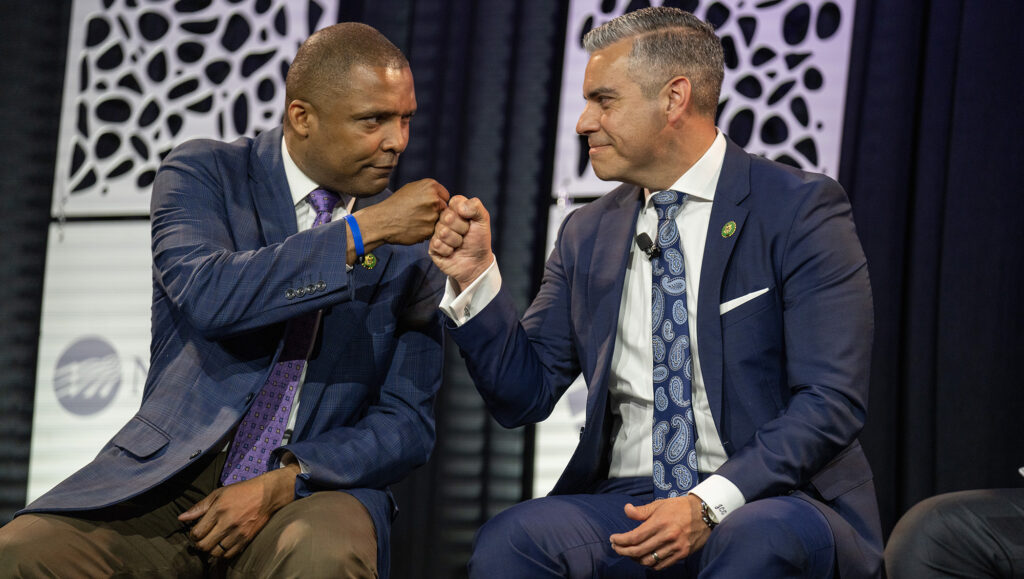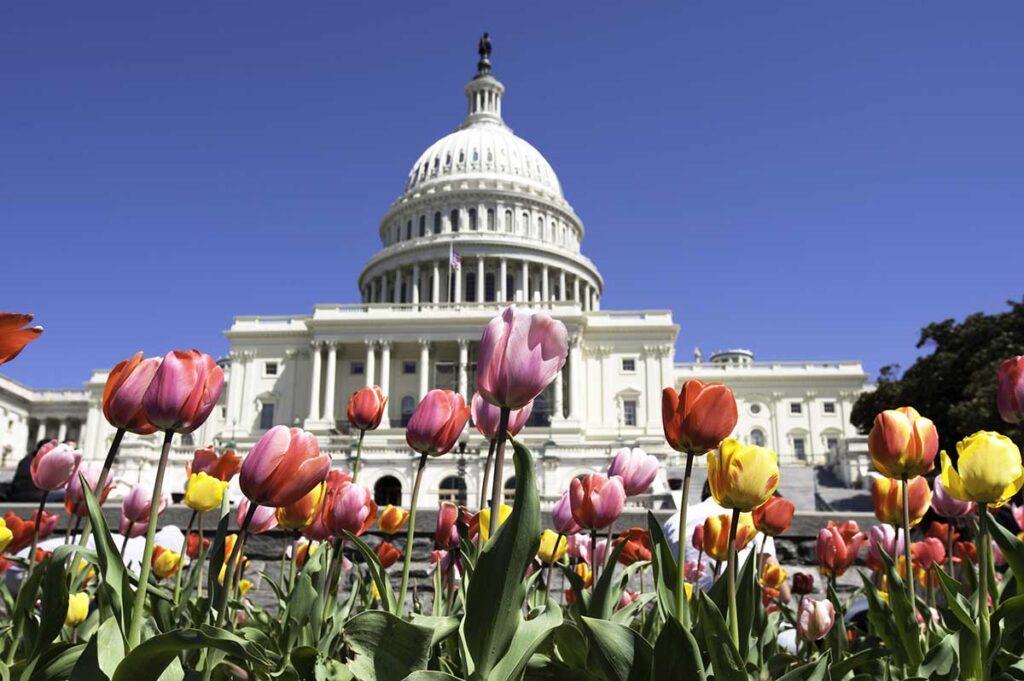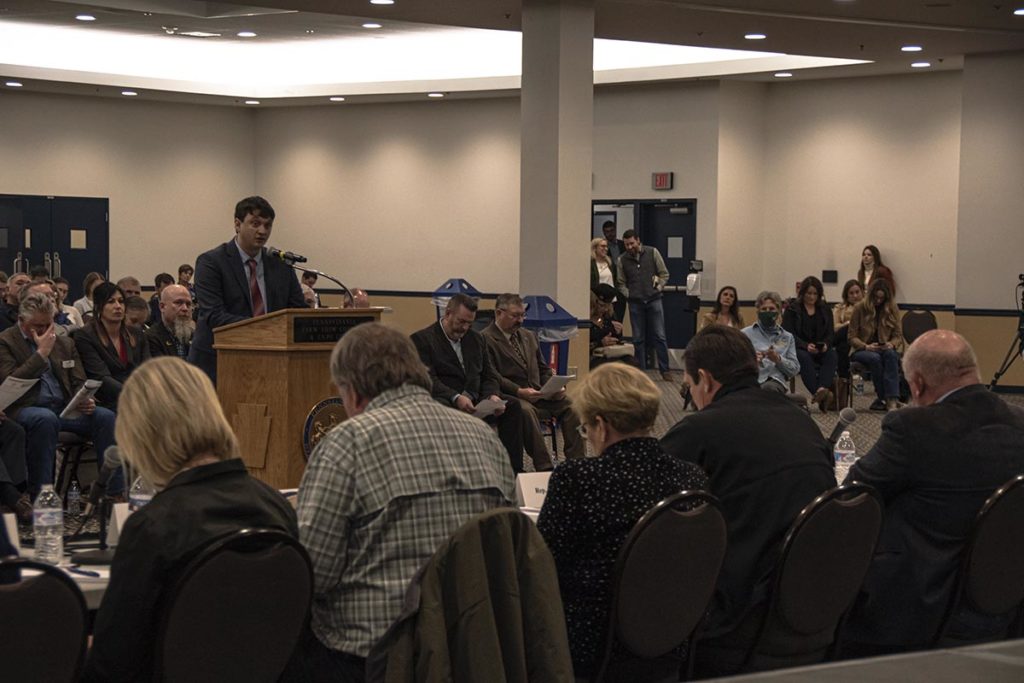
NRECA CEO Jim Matheson outlined electric cooperatives’ top legislative priorities as more than 2,000 co-op leaders converged on Capitol Hill this week during the association’s Legislative Conference.
“Our desire as electric co-ops is to make sure we have smart energy policies that help us meet the challenge of growing electric demand,” Matheson said Monday during a teleconference with reporters.
Matheson, who was joined by CEOs of co-ops in Oregon and Georgia at the teleconference, said the key issues that co-op leaders are urging their members of Congress to champion include these crucial five:
• Passing permitting reform. He said the overly bureaucratic federal permitting process imposes unreasonable delays and drives up costs for co-ops seeking to build essential electric infrastructure.
• Repealing the EPA power plant rule. Matheson said the power plant rule issued by the Environmental Protection Agency during the Biden administration jeopardizes grid reliability by forcing the premature closure of coal-fired plants, imposing unworkable emissions reductions on new natural gas plants, and mandating unproven technologies to replace reliable generation.
“In Georgia, our energy demands and needs are skyrocketing, and Oglethorpe Power is helping to meet that demand by building, right now, more than 1,600 megawatts of clean-burning natural gas,” said Annalisa Bloodworth, CEO of Oglethorpe Power Corp. in Georgia.
“We need the power plant rule to be repealed so that we can fairly and fully utilize these new natural gas resources and so that we can avoid a premature retirement of more than 1,000 megawatts of critical clean coal.”
• Protecting hydropower. Co-ops are calling on Congress to rescind a memorandum of understanding issued by the Biden administration that set the stage to breach four Lower Snake River dams that provide clean, carbon-free power to more than 50 co-ops in the West.
Keith Brooks, general manager of Douglas Electric Cooperative in Roseburg, Oregon, said reliable hydropower from the dams helped his co-op keep the power on during record-shattering cold in January 2024 for four straight days in the Pacific Northwest.
“During that time, when wind and solar went to zero, the Snake River kept churning out thousands of megawatt hours a day, keeping hundreds of thousands of homes in heat. I really believe without those dams in place we would have lost lives.”
• Defending against wildfires. Matheson said there’s “a massive backlog” of permit requests from co-ops seeking to remove hazardous trees that are in danger of falling from federal land onto electric lines and sparking fires. The House has passed the bipartisan Fix Our Forests Act, which would make it much easier for co-ops to remove those trees. Co-ops are urging the Senate to pass the bill now.
• Support funding for RUS Electric Loans. Co-op leaders are asking their lawmakers to support full funding for the Rural Utilities Service Electric Loan program, which finances construction of electric infrastructure in rural communities. Matheson noted that the program actually makes money for the federal government since co-ops repay the loans with interest.
Erin Kelly is a staff writer for NRECA.
More News From Legislative Conference:
Lawmakers Back Co-ops’ Push for Smart Energy Policies
Co-ops Get Policy, Funding Insights From Federal Agencies







